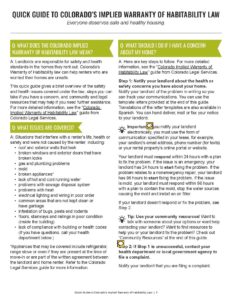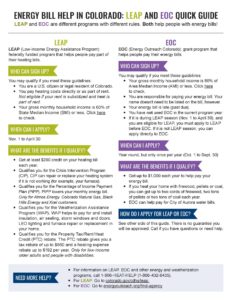Meeting Denver’s Health-related Social Needs
August 13th, 2021 | news
Health-related social needs often make the difference between someone who experiences positive versus negative health outcomes. Access to these vital necessities can be improved by something as simple as a timely referral. In March 2021, we completed a year-long facilitation project supporting the Denver Regional Council of Government’s (DRCOG)’s Accountable Health Communities initiative, whose main goal was to meet health-related social needs and establish a connection with clinical services.
DRCOG was one of only two community-based organizations in the country to receive funding through the Centers for Medicare and Medicaid Innovation. Together, we identified and convened four multi-sectoral workgroups to close each of the major gaps in Denver’s health-related social needs: food security, housing, utilities, and safety. These workgroups, facilitated by Margaret Franckhauser, Megan Hiltner, and Panos Smynios, collaborated with a number of local partners to bridge the clinical and community linkages and improve the health outcomes for the Denver community.
The workgroups were quick to identify food security as the greatest need for the Denver community, particularly during COVID-19. The volume of people in need was far greater due to the pandemic leaving many suddenly unemployed. The food security workgroup began by convening at clinic sites to help those with immediate food security needs, making revisions each time to improve its service. It then created a map of community food sources and identified areas where the food resources were most needed.
Eventually, the workgroup narrowed its efforts to one clinical site to establish a ‘food as medicine model’ The team had a number of logistical challenges such as how food would be stored, how perishable items would be kept refrigerated, and how to grant freedom of food choice. In partnership with the Food Bank at the Rockies, Jewish Family Service, Hunger-Free Colorado, county public health departments, and local health departments, the workgroup started the Fill the Void initiative, which gave people most in need $250 gift cards to local supermarkets. Some common reasons for sudden food insecurity were poverty, job loss, housing insecurity, effects of COVID-19, and immigration status.
Learn more about Fill the Void Colorado.
Meanwhile, another workgroup targeted the housing social need. Although evictions were temporarily halted due to the pandemic, the state did not suspend the requirement to pay rent. That, in combination with Denver’s tremendous affordable housing shortage, caused housing insecurity to skyrocket.
 The main priority of this workgroup, made up of partners from Jefferson Center for Mental Health, Denver Health West Pediatrics, Tri-County Health Department, Brothers Redevelopment, Violence Free Colorado, Dominican Home Health, and the Neighborhood Collaborative, was to apply the new renters rights law that had been passed to protect individuals from unsafe housing. However, the law wasn’t written in a way that was easy for average individuals to understand, much less benefit from. Of course, this meant it was nearly impossible for non-native English speakers to cite this law to protect themselves. The workgroup developed an infographic with guidance on how to both interpret the law and apply it. Only two pages long, the infographic simplified the dense legal jargon down to its key elements so that health care navigators could understand and explain it.
The main priority of this workgroup, made up of partners from Jefferson Center for Mental Health, Denver Health West Pediatrics, Tri-County Health Department, Brothers Redevelopment, Violence Free Colorado, Dominican Home Health, and the Neighborhood Collaborative, was to apply the new renters rights law that had been passed to protect individuals from unsafe housing. However, the law wasn’t written in a way that was easy for average individuals to understand, much less benefit from. Of course, this meant it was nearly impossible for non-native English speakers to cite this law to protect themselves. The workgroup developed an infographic with guidance on how to both interpret the law and apply it. Only two pages long, the infographic simplified the dense legal jargon down to its key elements so that health care navigators could understand and explain it.
 The utilities’ workgroup came up with a similar solution to close the information gap for paying utilities. The Energy Bill Quick Guide explains the difference between two of Denver’s utility assistance programs, the Low-Income Energy Assistance Program, and Energy Outreach Colorado (EOC), as well as their benefits and how to apply.
The utilities’ workgroup came up with a similar solution to close the information gap for paying utilities. The Energy Bill Quick Guide explains the difference between two of Denver’s utility assistance programs, the Low-Income Energy Assistance Program, and Energy Outreach Colorado (EOC), as well as their benefits and how to apply.
One-hundred and forty-five people attended a deeper training on EOC. EOC expanded its funded partners and kept its training free and open to help the community stay educated as the system evolves.
View the Energy Bill Help in Colorado: LEAP and EOC Quick Guide
The final workgroup partnered with local advocates from Violence Free Colorado, Family Tree, Colorado Access, and Denver Health to improve Denver’s interpersonal safety. The workgroup noticed that although domestic violence screening was taking place, health care providers did not know where to refer victims for services. The workgroup discovered that the navigators were uncomfortable with the conversation that had to come before making a referral and were unsure of the next steps.
Three universal trainings were held for care navigators, licensed providers, and other community-facing staff, and are now free and available online. The videos cover topics like mandatory reporting requirements and trauma-informed practices to educate providers on how to connect their patients to the resources they need.
As the COVID-19 pandemic continues, social need increases. JSI’s facilitation of DRCOG’s workgroups not only identified and provided sustainable solutions to some of the most pressing needs of Denver’s communities, they also spurred system change in these interconnected areas. JSI’s facilitation methods gave local community organizations the ability to participate fully in the workgroups and encouraged them to sustain efforts for change.
We strive to build lasting relationships to produce better health outcomes for all.